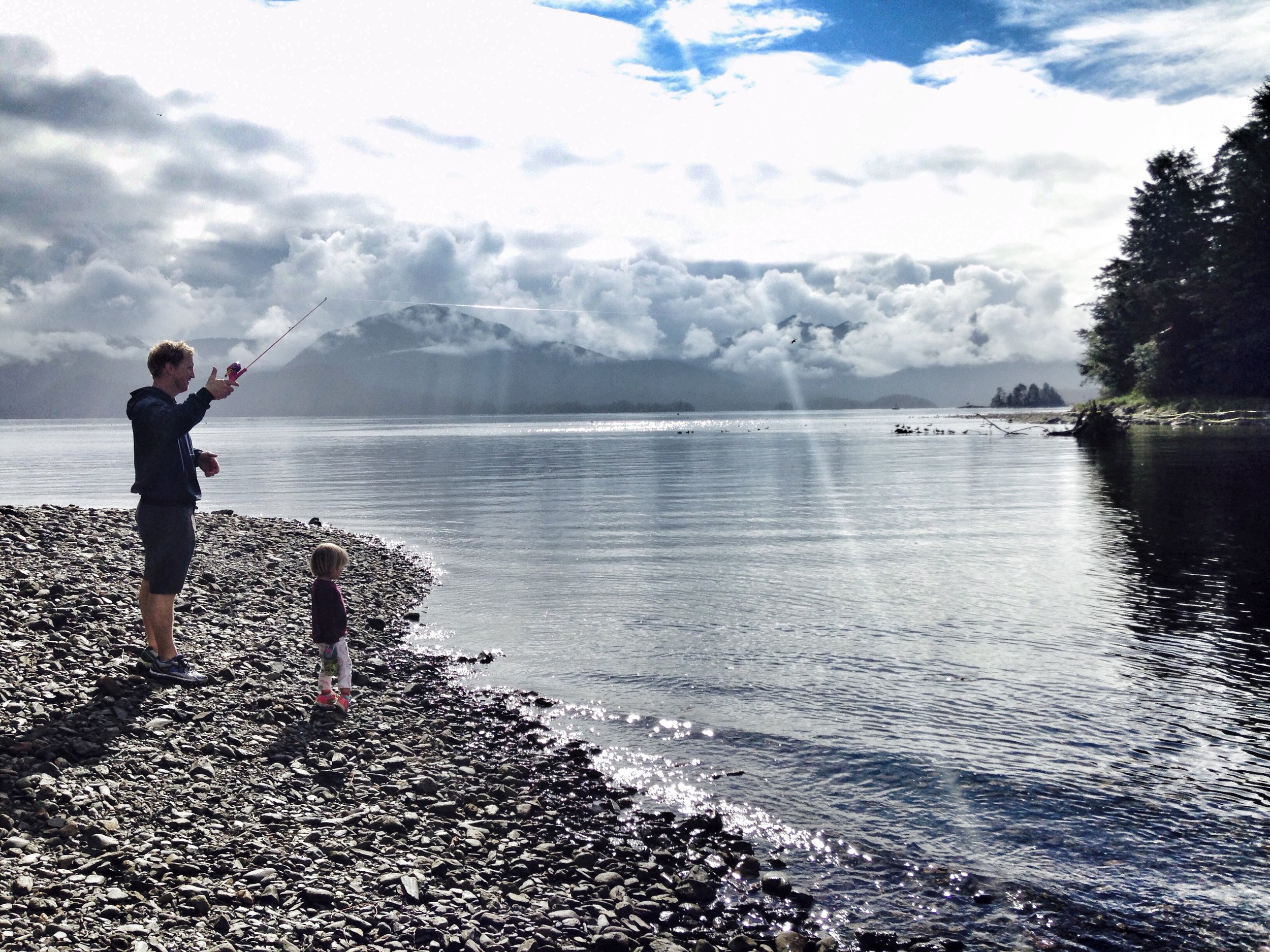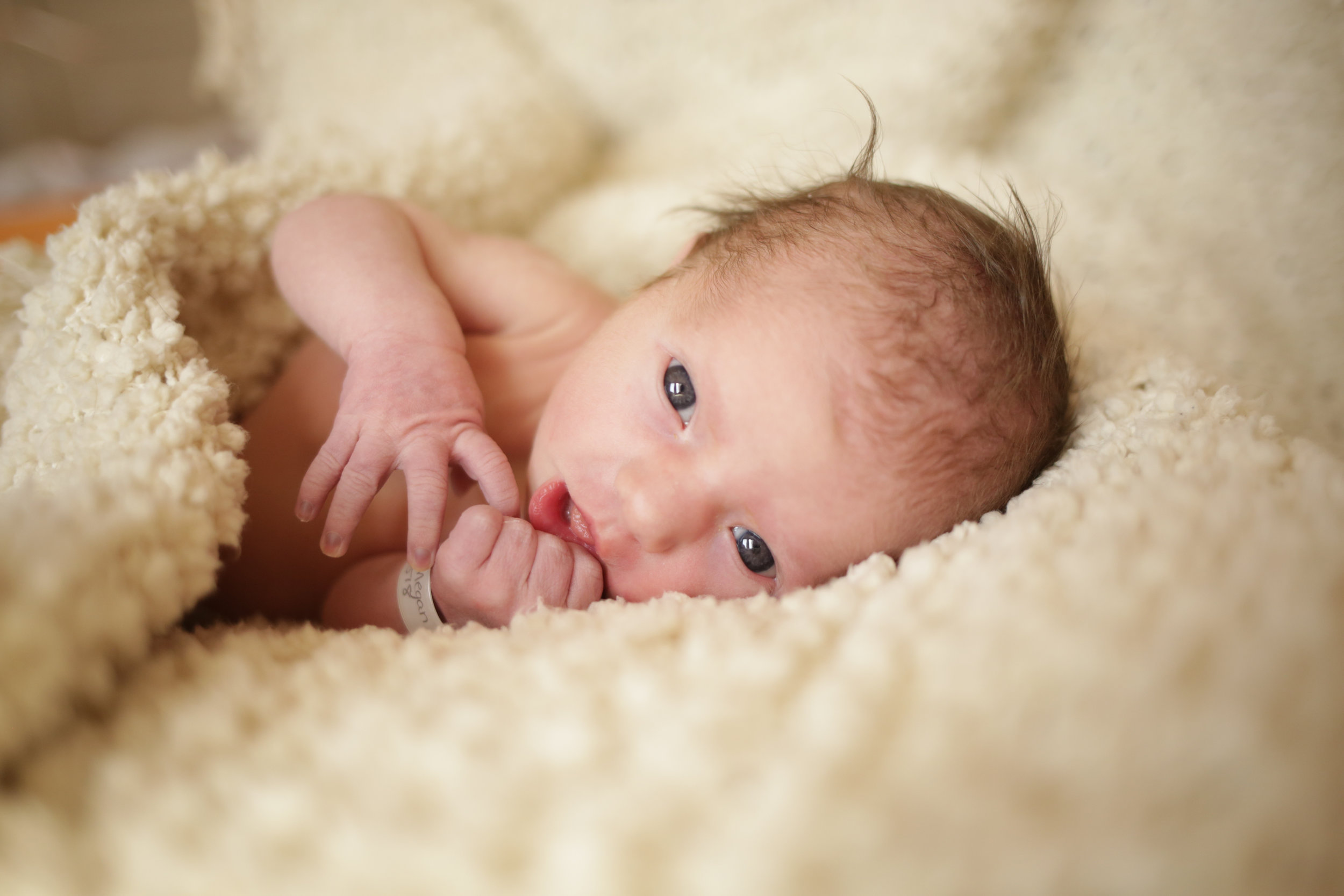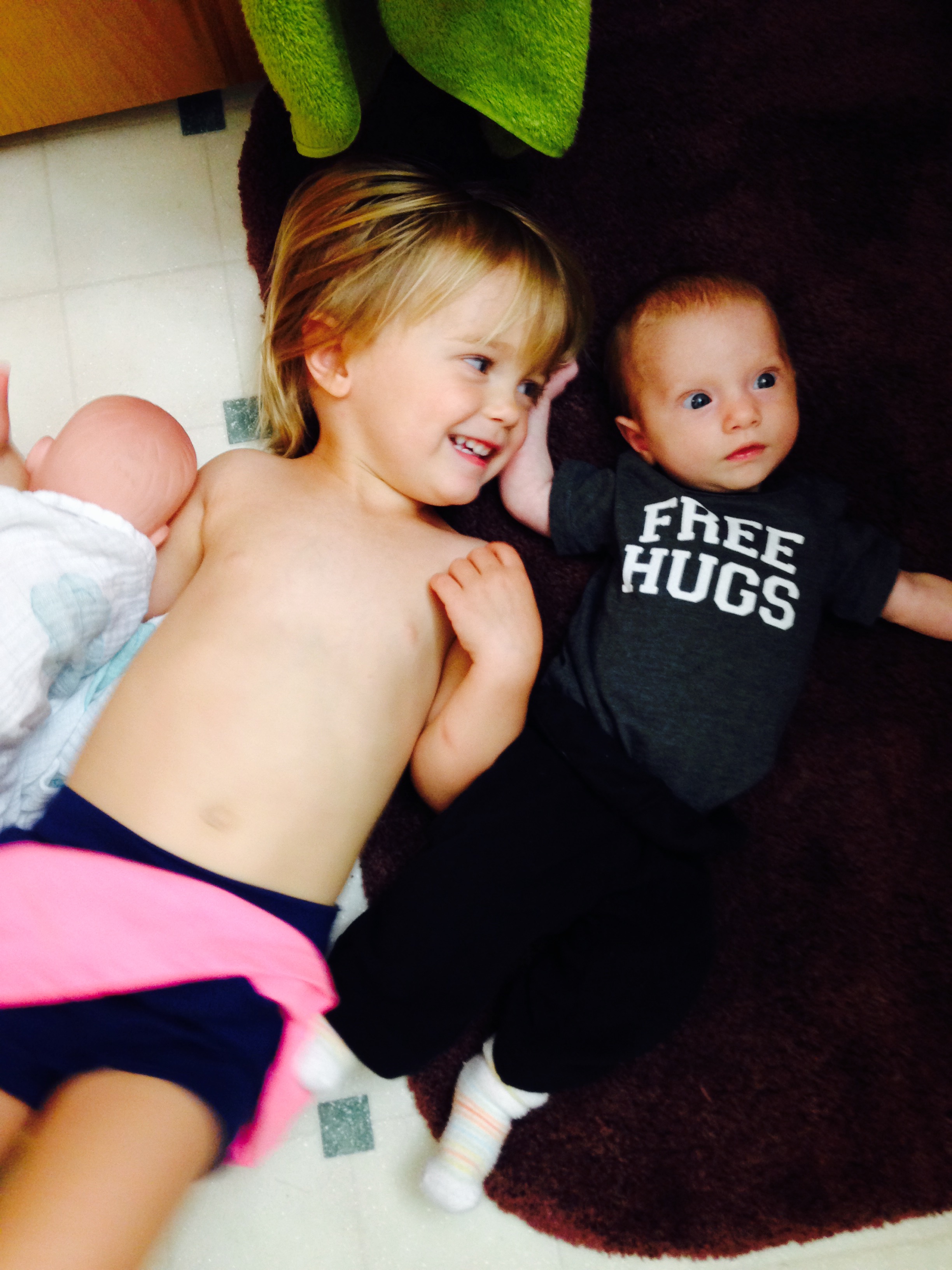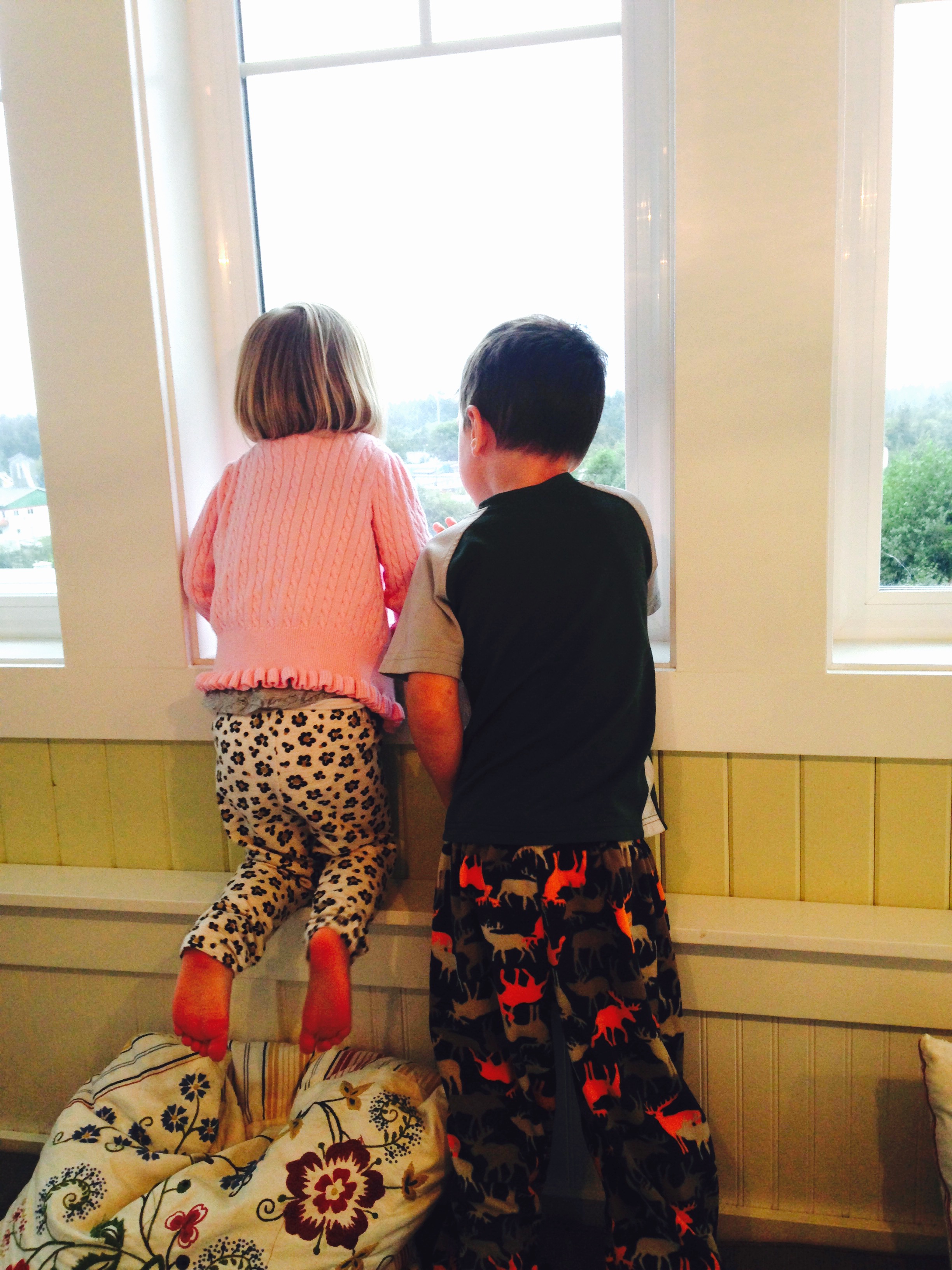September Time Capsule
 We leave Alaska tomorrow. We have more laundry than I thought we owned in clothes, toys are still lodged in the heating vents, I started a fire in the kitchen last night, and the cleaners are coming first thing in the morning. As I sift through the last things we'll give away, I know I won't really know how to feel about this time in our lives until I look back on it many years from now. I know that big change and the making sense of it never come at the same time, even though one of my greatest daily efforts has been striving to make them happen simultaneously.
We leave Alaska tomorrow. We have more laundry than I thought we owned in clothes, toys are still lodged in the heating vents, I started a fire in the kitchen last night, and the cleaners are coming first thing in the morning. As I sift through the last things we'll give away, I know I won't really know how to feel about this time in our lives until I look back on it many years from now. I know that big change and the making sense of it never come at the same time, even though one of my greatest daily efforts has been striving to make them happen simultaneously.
One summer here, while teaching a few writing classes at the Sitka Fine Arts Camp, my students wrote letters to their future selves for a creative writing time capsule. We collected current newspaper clippings and selfies and recently used doodads and zipped the whole pile up into a neoprene cooler. We buried the bursting thing in the old Russian cemetery under a patch of ferns and a sky of rain gentled by the canopy of 200-year old trees.
 I picture making a time capsule this summer and inside are all the words to which I have not yet been able to lend order or priority. Doctors and tests and deaf and Deaf. Patience, gratitude, God, and reason. Trust and landslides, newborn and toddler and patience. Anna. Zaley. Mermaids. Macaroni. When you open it, there is music--a new kind of music, the most wonderful of music, the kind no one has ever been able to hear. I would bury the time capsule down by Indian River where the salmon this time of year are sliding upriver to lay their eggs then die. They are bruised now, red and blue and rising over stones and water in this last, burdened stretch.
I picture making a time capsule this summer and inside are all the words to which I have not yet been able to lend order or priority. Doctors and tests and deaf and Deaf. Patience, gratitude, God, and reason. Trust and landslides, newborn and toddler and patience. Anna. Zaley. Mermaids. Macaroni. When you open it, there is music--a new kind of music, the most wonderful of music, the kind no one has ever been able to hear. I would bury the time capsule down by Indian River where the salmon this time of year are sliding upriver to lay their eggs then die. They are bruised now, red and blue and rising over stones and water in this last, burdened stretch.
 It must be true that part of us dies, too, when we give birth. As Luke slipped Zaley's watercolors and some photos from under their magnets on the fridge, I looked at the pictures of me pregnant with Anna and I hurt for that naive fullness, for her life when it was contained and safe and unnamed. I know I will ache for this summer, too, in the same way. How I can walk through the bookstore, like I did yesterday, and people love a tiny baby, and they have no questions, because right now, she looks like every other healthy, normal baby. Her disease and her deafness are such secrets. Next summer, she will be different. There will be cochlear implants and then questions. There will be the other ways her self unveils itself and unwinds from this illness.
It must be true that part of us dies, too, when we give birth. As Luke slipped Zaley's watercolors and some photos from under their magnets on the fridge, I looked at the pictures of me pregnant with Anna and I hurt for that naive fullness, for her life when it was contained and safe and unnamed. I know I will ache for this summer, too, in the same way. How I can walk through the bookstore, like I did yesterday, and people love a tiny baby, and they have no questions, because right now, she looks like every other healthy, normal baby. Her disease and her deafness are such secrets. Next summer, she will be different. There will be cochlear implants and then questions. There will be the other ways her self unveils itself and unwinds from this illness.
I know I'll look back on this summer with a pervading sense of something, like our mystically autonomous memories always ascribe.  Anna's birth is becoming this way to me already--a dream-like, breezeless, yet still vague sensation hovering over those initial hours of her entry. Unlike the 20-some hours of struggle to get Zaley out, my labor with Anna was quick and furious. I was loud. And as soon as I saw her, I knew something was different. The room was candlelit. Her hair was black and slick, matted into waves like doodles done with a felt-tip pen. The sun was coming up just behind the hospital chapel and as my doula brought her upwards, still attached to me, she was quiet. In her fixed black eyes there was a pleading. She did not cry. The nurses brought her to the corner where they coaxed the wails out of her, and I kept asking "Is she ok? Are you sure she's ok?" I wonder now if she was quiet because she was born into quiet. At Lutheran Hospital, they play a song through all the hallway speakers when a baby is born. They were wheeling us up to our room when I heard it. I was so proud. I cried looking down at her. I did not know she had hearing loss but when I heard the song, I thought to myself, I wonder if she can hear that. She was five pounds and she nursed with an urgency. Our room overlooked the mountains and when people visited, they noted a calm. Zaley was with grandparents. I was waiting for Luke to come home from Alaska, but I was through-and-through content. A nurse bathed Anna the next day in my room, in a sink. She made no sound. Her hair was so much darker than I'd pictured in a child of mine. Her eyes found my eyes. We were suspended in a liquid-like peace.
Anna's birth is becoming this way to me already--a dream-like, breezeless, yet still vague sensation hovering over those initial hours of her entry. Unlike the 20-some hours of struggle to get Zaley out, my labor with Anna was quick and furious. I was loud. And as soon as I saw her, I knew something was different. The room was candlelit. Her hair was black and slick, matted into waves like doodles done with a felt-tip pen. The sun was coming up just behind the hospital chapel and as my doula brought her upwards, still attached to me, she was quiet. In her fixed black eyes there was a pleading. She did not cry. The nurses brought her to the corner where they coaxed the wails out of her, and I kept asking "Is she ok? Are you sure she's ok?" I wonder now if she was quiet because she was born into quiet. At Lutheran Hospital, they play a song through all the hallway speakers when a baby is born. They were wheeling us up to our room when I heard it. I was so proud. I cried looking down at her. I did not know she had hearing loss but when I heard the song, I thought to myself, I wonder if she can hear that. She was five pounds and she nursed with an urgency. Our room overlooked the mountains and when people visited, they noted a calm. Zaley was with grandparents. I was waiting for Luke to come home from Alaska, but I was through-and-through content. A nurse bathed Anna the next day in my room, in a sink. She made no sound. Her hair was so much darker than I'd pictured in a child of mine. Her eyes found my eyes. We were suspended in a liquid-like peace.
 What of these days, this now, now knowing? What will this feel like when it is past tense? I know there will be worry in my memory, but also a deepening that was never here before Anna. This summer's suns and rains, usually three day bursts of each, were of an unusual intensity. We broke a record this week: 4.37 inches of rain on a single day. A friend tells me something about the stars and planets that I don't understand, but the gist is that things are in a state of uncommon flux. While I write, Luke is at the Science Center with Zaley, petting the octopi and counting the colors of coral reefs. Anna is asleep on my chest, and behind me, the sun makes dramatic appearances between clouds that pour intermittent and crescendoing rain. Before me, in this first house we've ever had here to ourselves as a family, is the biggest mess I have ever seen in my life, and I am ignoring it so I can try to keep track of a season that, like all others, will become only a sentence if I let it.
What of these days, this now, now knowing? What will this feel like when it is past tense? I know there will be worry in my memory, but also a deepening that was never here before Anna. This summer's suns and rains, usually three day bursts of each, were of an unusual intensity. We broke a record this week: 4.37 inches of rain on a single day. A friend tells me something about the stars and planets that I don't understand, but the gist is that things are in a state of uncommon flux. While I write, Luke is at the Science Center with Zaley, petting the octopi and counting the colors of coral reefs. Anna is asleep on my chest, and behind me, the sun makes dramatic appearances between clouds that pour intermittent and crescendoing rain. Before me, in this first house we've ever had here to ourselves as a family, is the biggest mess I have ever seen in my life, and I am ignoring it so I can try to keep track of a season that, like all others, will become only a sentence if I let it.
This is the time of year I become most grateful for this place, and I know, a bit shamefully, it's because we are leaving it. This feels like a small betrayal, to leave our other friends to a season of cold monsoons while we get 80-degrees still ahead and then crisp leaves and there is a clear transition to the wearing of scarves, but I cannot help that I love Colorado. I will miss the proximity of everything in Sitka, the geography, the rain-inspired innovation of indoor games, the fresh salmon, the safety, the good, wild-hearted people.
I will miss my close friend Lisa, who will be moving right after I get here next summer because her husband is in the Coast Guard. The other day, while our kids picked through kelp and crabs and jellies on the beach, I told her I'm worried that at three months (and less than 8 pounds) Anna cannot yet hold up her head. Lisa, who has six kids, doesn't try to explain Anna's differences away with conjecture. She comforts me with the stories of each of her children, the ways they are both different than her expectations, and how each one is the same, in certain ways, as the moment they were born. She brings Anna to sleep by patting her little butt absent-mindedly like a mother who has done this way more than me. Her mothering is so natural and energized, my observations sometimes make me feel like an amateur. She warns about saying yes to the first request of a sleep-over, strictly enforces a daily quiet time so she can read or knit her girls sweaters. She suggests I say a prayer with Zaley every day on the way to her school. As the tide gurgled up the rocky beach, we ate crackers and called to the kids when we lost sight of them behind moss- and barnacle-covered boulders. Lisa says that each child carries within them their mom's sense of hope, that the whole family takes its cue from the mother.
 On Saturday evening, at church, the priest presented two ankle-width, white candles to the father and mother of the boys who died in the landslide. I wonder how this mother can have hope, this smiling woman with tears running down her face who somehow buttoned her blazer and got in the car and made the sign of the cross. But then I see that there are other children sitting with her, and I think of what Lisa said, and I look at my girls who are in a state of noticeable deterioration during this one hour of the week I would like them to be good, and I think that if I lost it as much as I wanted to with the choir singing a sad Catholic song from my childhood and the hard rain falling irreverently from the roof, my kids would fall apart even more, too. Hope is not always a given in motherhood--or for any person, really; it comes when our children or families summon.
On Saturday evening, at church, the priest presented two ankle-width, white candles to the father and mother of the boys who died in the landslide. I wonder how this mother can have hope, this smiling woman with tears running down her face who somehow buttoned her blazer and got in the car and made the sign of the cross. But then I see that there are other children sitting with her, and I think of what Lisa said, and I look at my girls who are in a state of noticeable deterioration during this one hour of the week I would like them to be good, and I think that if I lost it as much as I wanted to with the choir singing a sad Catholic song from my childhood and the hard rain falling irreverently from the roof, my kids would fall apart even more, too. Hope is not always a given in motherhood--or for any person, really; it comes when our children or families summon.
I must be hopeful. I must not do what I did earlier this week, which is see how early you can spot signs of cerebral palsy (a symptom of congenital cmv) in a child who does not yet lift her head. So instead, I think of a quote I read online from another mother whose daughter has the same condition: "Our kids won't live common lives. They'll live extraordinary ones."
Yesterday, using a hot pink, hand-me-down, Barbie fishing rod, Luke caught Zaley one last salmon in the river. We said our annual goodbyes, talked of how hard it is to leave a place even if staying would be harder. Tomorrow, the plane will cut through the fog and take us back to Denver.
